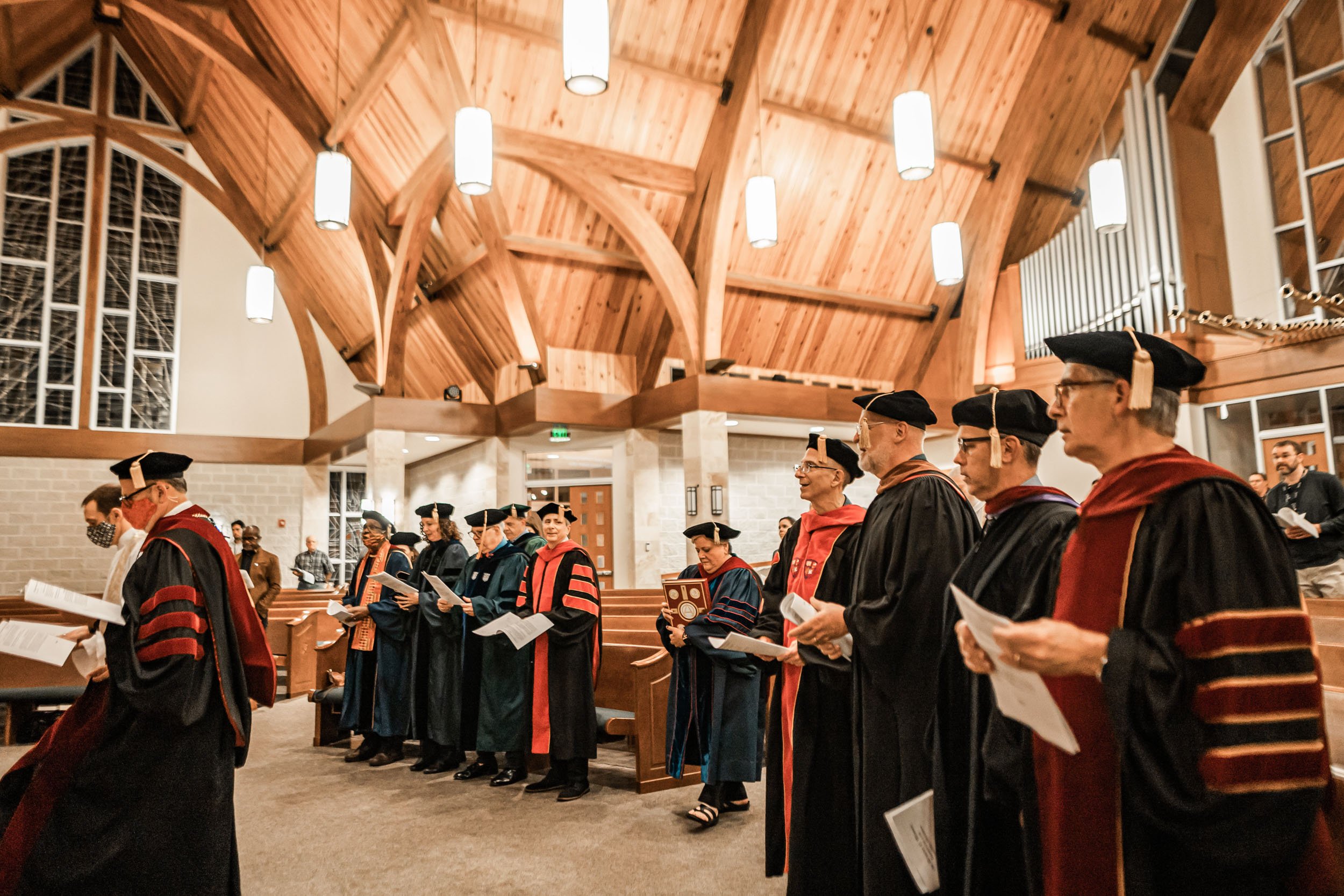The purpose of the Doctor of Worship Studies (D.W.S.) and Master of Worship Studies (M.W.S.) programs, offered uniquely through The Institute for Worship Studies, is to further equip worship leaders, instructors, and others interested in the theory and practice of Christian worship, for their responsibilities in the local church and other settings. These programs grew out of the need for worship pastors and leaders, often trained and credentialed at the master’s degree level in church music, for additional study in the field of Christian worship. This constituency found that with its academic credentials in music, it was difficult to be accepted into a graduate degree program other than one specifically related to music. The D.W.S. and M.W.S. programs are intended to fill this gap.
The Doctor of Worship Studies degree is a professional, terminal degree. Although it is a doctoral-level program, requiring a master’s degree for acceptance, it is not represented as a research degree on the level of the Ph.D.
Details of existing Cooperative Educational Agreements (Credit Transfer Agreements) with B. H. Carroll Theological Institute, Gordon-Conwell Theological Seminary, and Knox Seminary are available here. Although many other colleges and seminaries have also recognized the quality of the courses provided by IWS and have transferred IWS credits, accepting transfer credits is the responsibility and prerogative of institutions. The accredited status of an institution is an important, but not the sole factor, that is considered in the transfer of credit decisions. Institutions usually commit to at least consideration of transfer requests, not rejecting such requests out of hand.
We are currently accepting applications for new students to begin the upcoming intensive week session!
